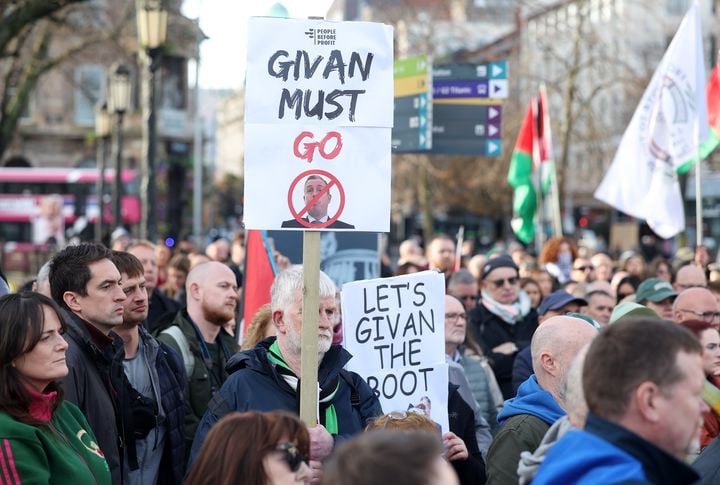The political landscape in Northern Ireland has shifted following a visit by Education Minister Paul Givan to Israel, which has sparked significant controversy. Sinn Féin has announced its support for a motion of no confidence against Givan, reflecting growing discontent among various political factions regarding his recent actions.
The call for Givan’s resignation intensified after his trip to Israel, which some critics argue was inappropriate given the ongoing tensions in the region. In response, Gavin Robinson, leader of the Democratic Unionist Party (DUP), defended Givan, stating that he is “going nowhere.” Robinson’s remarks suggest that there is strong backing within the DUP for Givan amid the escalating calls for his removal.
Protests erupted at Belfast City Hall following Givan’s return, with demonstrators expressing disapproval of his trip and the perceived implications of his actions. Critics have described some of the backlash against Givan as reflecting “prejudice and antisemitism,” a claim that Robinson strongly supports. He argued that the criticism directed at the Education Minister has crossed a line, indicating a troubling trend in the discourse surrounding political figures in Northern Ireland.
The no-confidence motion led by Sinn Féin is not just a reflection of dissatisfaction with Givan’s policies but also serves as a broader statement regarding political accountability in the region. Sinn Féin’s decision to back this motion underscores the party’s commitment to holding government officials responsible for their actions, particularly those that may be viewed as insensitive or inappropriate.
As the situation develops, the Assembly will address the no-confidence motion, which is scheduled to be debated in the coming weeks. The outcome could have significant implications for Givan’s political future and the stability of the current government.
The political ramifications of Givan’s Israel visit and the subsequent reactions highlight the complexities of governance in Northern Ireland, where issues of identity, legacy, and international relations are often intertwined. As parties like Sinn Féin and the DUP navigate these tensions, the focus will remain on how they respond to the evolving political climate and the demands of their constituents.
In the coming days, the Assembly’s discussions will not only determine Givan’s fate but may also shape broader public opinion regarding party politics in Northern Ireland during a time of heightened scrutiny.







